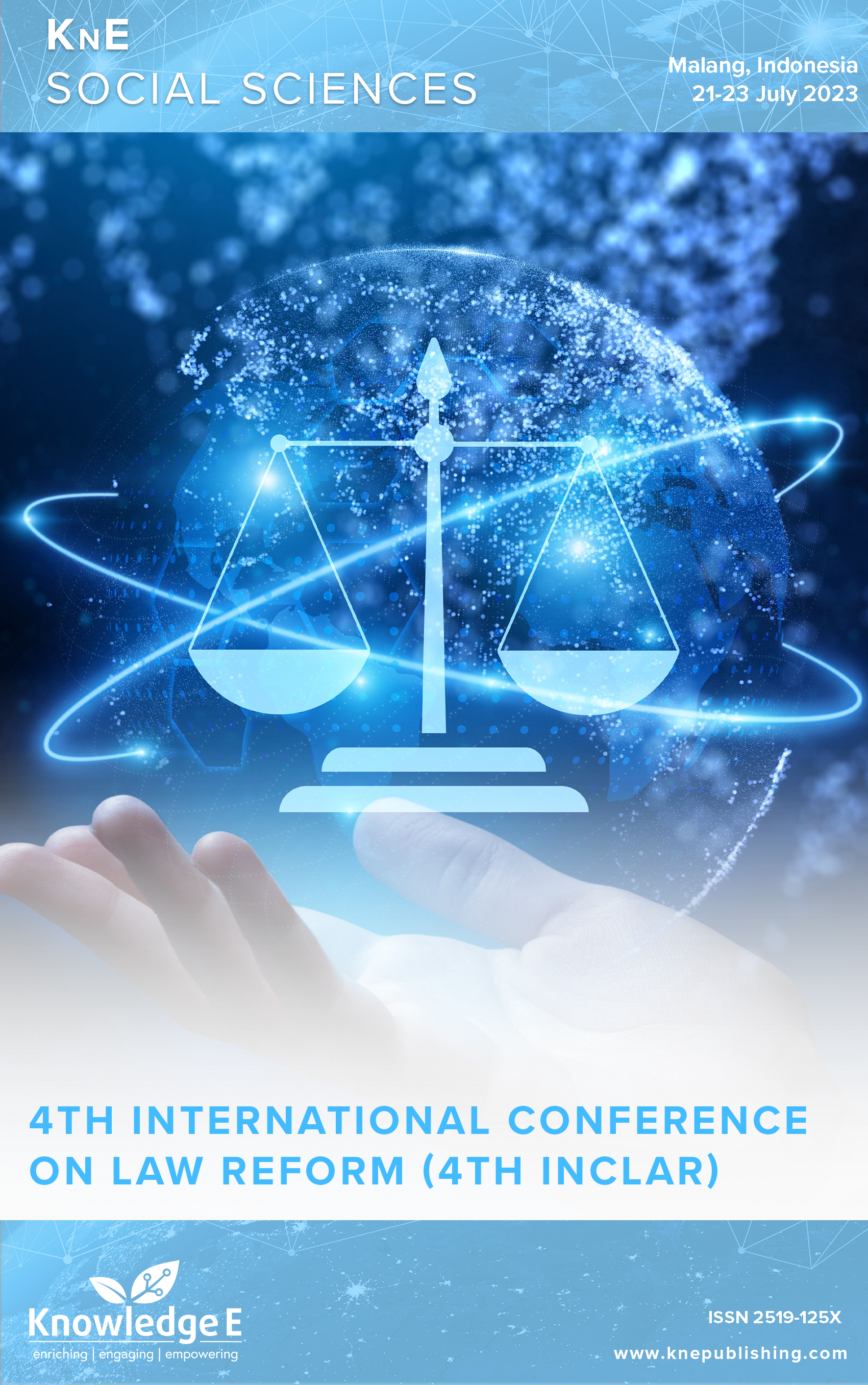Illegal Electronic Investments in Trade Robot Missions According to the Criminal Law in Indonesia
DOI:
https://doi.org/10.18502/kss.v8i21.14746Abstract
Various financial technology companies are currently using standard agreements. With the rise of standard agreements, business actors began to include exoneration clauses to release all forms of responsibility for losses suffered by consumers. One of the companies that has included the exoneration clause is Koinworks in Article 5 of the Koinworks Terms & Conditions. Based on this statement, the authors conducted this research using two problem formulations, namely what are the legal consequences of applying the exoneration clause in standard agreements made by financial technology business actors when viewed from Article 1320 of the Civil Code? And how about preventive legal protection against leakage of consumer data by the negligence of financial technology companies? To be able to answer the formulation of the problem, the authors use normative juridical research methods with a statutory approach. The results of the study show that the legal consequences of applying the exoneration clause in standard agreements made by Financial Technology business actors when viewed from Article 1320 of the Civil Code, it can be concluded that the exoneration clause can be null and void by law. Then, preventive legal protection needs to be carried out by optimizing supervision by the Financial Services Authority, such as taking action against companies that have violated statutory provisions before the occurrence of disputes or problems.
Keywords: Legal Protection; Data Leakage; Financial Technology Companies.
References
Pradnyaswari E, Ayu I, Westra I. Legal Protection Efforts for Consumers in Buying and Selling Transactions Using E-Commerce Services. Kertha Semaya Journal. 2020;5(8):758-766.
Singarsa I. Legal Protection of Consumer Personal Data in the E Commerce Platform. Kertha Desa Journal. 2021;9(11):81-91.
Wirawan I, Purwanto, I. The Legitimacy of Fintech Agreements in the Perspective of Civil Law. Kertha Desa Journal. 2021;9(5):82-91.
Saputra S. Legal Strength Status of Agreements in Online Buying and Selling Conducted by Minors. Wawasan Yuridika Journal. 2019;3(2). 201-216.
Dewi I. The Big Boss of Fintech Says It’s Easy to Leak Data from Indonesian Citizens. 2022. https://www.cnbcindonesia.com/tech/20220826064411-37-366748/bosbesar- fintech-bilang-ini-soal-data-warga-ri-gampang-bocor.
Zakiyah. Exoneration Clause in Consumer Protection Perspective. Al’adl. 2017;9(3):435-451. DOI: https://doi.org/10.31602/al-adl.v9i3.1052
Admin. Koinworks. 2023. https://koinworks.com/.
Sugono B. Legal Research Methods. Jakarta: Raja Grafindo Persada; 2003.
Tobing L. Differences in Legal Age Limits in Legislation. 2016. https://www.hukumonline.com/klinik/a/perbedaan-batasan-usia-cakap-hukumdalam- peraturan-perundang-undangan-lt4eec5db1d36b7.
Koinworks. Koinworks Terms and Conditions. 2023. https://koinworks.com/syaratdan- ketentuan/.
Hukumonline T. 4 Requirements for a Valid Agreement in the Eyes of the Law. 2022. https://www.hukumonline.com/berita/a/4-syarat-sah-perjanjian-di-matahukum- lt6273669575348/?page=1.
Sinaga N. The Role of Agreement Legal Principles in Realizing the Purpose of the Agreement. Binamulia Hukum. 2018;7(2):107-120. DOI: https://doi.org/10.37893/jbh.v7i2.20
Singarsa I. Legal Protection of Consumer Personal Data in the E Commerce Platform. Kertha Desa Journal. 2021;9(11):81-91.
Soemitra S, Adlina. Consumer Protection Against Data Leakage in Financial Services in Indonesia. Insitusi Politeknik Ganesha Medan Journal. 2022;5(1):288-303.
Adawiyah. Legal Protection of Customer Data of Users of Financial Technology Services. Islamic Business Law Journal. 2020;4(4):1-9.
Aprilia M. Financial Technology Peer to Peer Lending Consumer Protection in Indonesia Against Losses Due to Doxing Actions. Surabaya:University of Airlangga;2020.
Olifiansyah M. Legal Protection for Personal Data Theft and the Dangers of Using Online Loan Applications. Hukum De’Rechtsstaat Journal. 2021;7(2):199-205.

